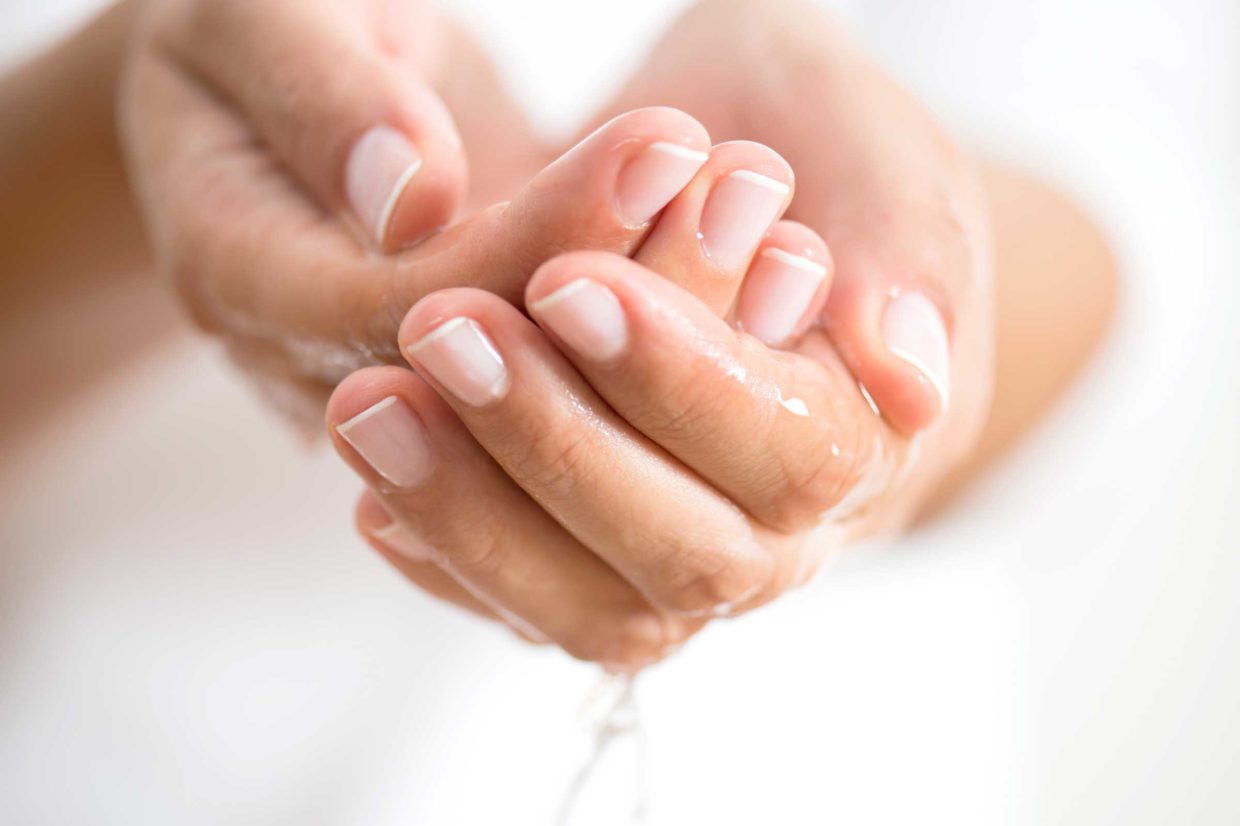Natural Ways To Lock In Skin Moisture

USE HUMECTANTS AND OCCLUSIVES
Humectants are molecules that bind water to themselves, acting like little sponges on your skin that hold onto water. A natural humectant such as aloe vera, glycerin, rose hydrosol, and hyaluronic acid provide amazing results. Hyaluronic acid can hold up to 1000 times its own weight in water, it reduces the appearance of wrinkles – it plumps them up, but only temporarily. Fresh aloe vera is a good choice for acne prone skin.
Occlusives form a barrier-like layer on the surface of your skin, preventing the water from escaping. They include plant oils, shea butter, mango butter and coconut oil. A little caution is needed when using humectants. They cannot differentiate between the water in the air and in your skin, so if the air humidity is low, humectants will begin to pull the water from the deeper layers of your skin (especially synthetic ones), which can actually dehydrate your skin!
Many moisturizers contain both humectants and occlusives.
If you are using rose hydrosol spray (humectant) it onto your face, let it air dry (you can repeat this a few times). When your skin is just slightly damp, apply a thin layer of oil (occlusive) by patting it onto your skin. This works wonders!
USE A DIFFUSER
Diffuses are also humidifiers! This keeps the optimal moisture in the air and can make a difference in your skin, especially if you live in a cold or dry climate. One hour before bedtime add lavender essential oil to a diffuser where you sleep. If the air is really dry, you can even set it to 6 hours, and wake up with beautiful dewy skin.
DRINK ENOUGH WATER / HERBAL TEA
How many of us actually get enough water?
Make it easy for yourself, use a glass or stainless-steel bottle and carry your favorite infused water or herbal tea with you. The key is to sip on it the entire day, which makes it much easier for the body to retain that liquid. If you drink several glasses of water within a short time, it will just pass through your body. Spearmint tea helps fight hormonal acne by acting as an anti-androgen. Tulsi (holy basil) tea is full of beneficial antioxidants and Dandelion root tea or a Fermented Dandelion Living Herb helps acne by promoting liver detox.
CONSUME OMEGA-3 ESSENTIAL FATTY ACIDS
This is important, but often overlooked. Essential fatty acids (EFAs) cannot be made by the body, so we need to obtain them through diet. They play a major role in keeping the moisture in your skin. Omega-3s are important for the skin. The three main types of omega-3 fatty acids are α-Linolenic acid (ALA), eicosapentaenoic acid (EPA), and docosahexaenoic acid (DHA).
Having enough of omega-3 essential fatty acid in your body keeps your skin hydrated and prevents it from drying and flaking.
EPA and DHA are found in animal sources like salmon and sardines and fermented cod liver oil. ALA, which is found in plant sources (flaxseed, hemp seeds, walnuts) can be converted to the other omega-3s inside the body, making ALA the only essential one within the omega-3 group. Your skin needs all three, particularly eicosapentaenoic acid (EPA), which is vital for a healthy and glowing complexion. Omega-3s are a crucial part of your skin’s lipid content, which make up your skin barrier, together with the dead skin cells (corneocytes). This is like a seal on the top of your skin and keeps the moisture in and irritants out. Increasing your omega-3 intake helps strengthen that seal and reduce the loss of water. This is important because healthy, soft membranes allow for a good flow of nutrients and elimination of waste, which result in soft skin with a smooth and supple appearance.
For healthy and glowing skin, include foods rich in the omega-3s daily, including walnuts, flaxseed, and hemp seeds for ALA, and salmon (preferably wild and sustainably caught), sardines, cod liver oil and other fatty fish for DHA and EPA. Omega -3 supplements are also helpful for acne prone skin.
EAT HIGH-QUALITY PROTEIN
There are small molecules that hold the water in the external layers of your skin. They are produced by your skin and are called Natural Moisturizing Factors. You need to consume enough high-quality protein to naturally moisturize your skin.
